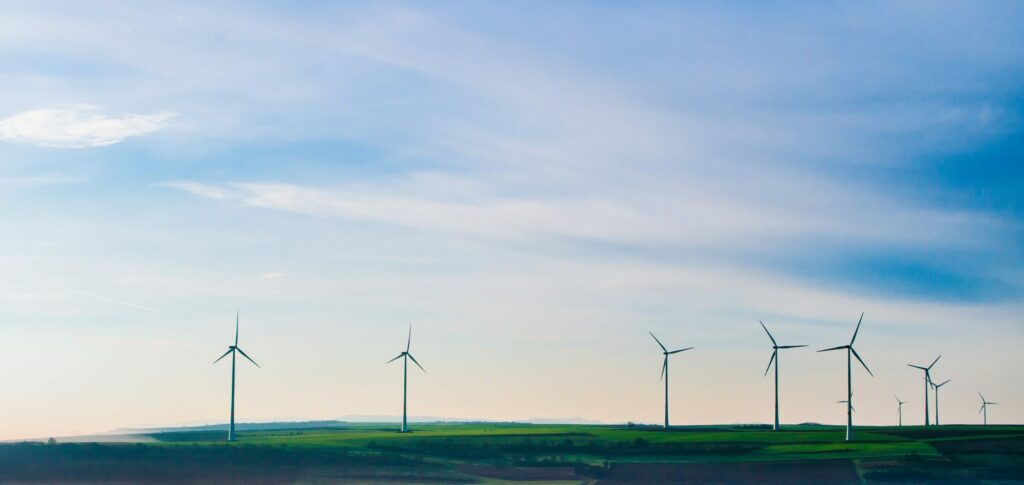☀️ Current climate commitments would allow global warming of up to 2,6°C, UN warns
Countries' current commitments to reduce greenhouse gas emissions leave the world on track for a global warming of 2,6 degrees Celsius by the end of the century, warned the United Nations (UN) this Thursday (27) – in a new report (*) released just a few days before the start of COP27.
ADVERTISING
But the States do not fulfill the announced commitments and the current trajectory can generate even greater warming, of 2,8°C, according to the report from the United Nations Environment Program (UNEP).
The report examines the difference between pollution by carbon dioxide (CO2), in line with countries' plans to decarbonize their economies, and what science considers necessary to contain warming to between 1,5ºC and 2ºC compared to the pre-industrial era.
The text highlights that to reach the 1,5°C target it would be necessary to reduce emissions by 45% compared to current levels.
ADVERTISING
Concrete actions
Last year, during COP26 in Glasgow, countries signed a “pact” to encourage the reinforcement of contributions at national level each year. But the response was “woefully insufficient”, highlights the document, according to which only 24 countries complied with the agreement.
“We are heading towards a global catastrophe”, warned UN Secretary-General Antonio Guterres, who criticized the lack of concrete actions to fight climate change. “Carbon neutrality commitments are worthless without plans, policies and actions to support them,” he said.
The UNEP report states that the latest commitments announced by countries, called “nationally determined contributions” (NDC), will reduce emissions by 5% by 2030 relative to the current trajectory for agreements made without conditions and by 10% for those carried out with financing conditions or external actions.
ADVERTISING
This, in terms of warming, implies that unconditional contributions “present a 66% chance of limiting warming to around 2,6°C by the end of the century”.
Considering the commitments that present conditions, the result is slightly better, but it would cause an increase of 2,4°C, which remains well above the objectives of the Paris Agreement.
When considering the “carbon neutrality” commitments that several countries have recently announced, the increase can be contained to 1,8ºC.
ADVERTISING
“Missed opportunity”
“But this perspective is currently not credible”, highlighted the experts in the report, which points out “divergences” between the promethese and the results.
“We see a complete recovery in emissions after Covid. It is a missed opportunity in terms of using unprecedented recovery funds to accelerate a green transition,” Anne Olhoff, lead author of the report, told AFP.
Read also
🍃 TotalEnergies announces company in Brazil for wind projects
The French oil and gas group Total Energy announced, this Wednesday (26), the creation of a joint company with the Brazilian House of the Winds for wind projects in the country.
ADVERTISING
Casa dos Ventos (CDV) already exploits wind energy with a capacity of 700 megawatts, which will be part of the new company's portfolio.
In addition, other power generation parks are under construction for a total capacity of 1 gigawatt, as well as projects under development “in advanced stages” for 2,8 gigawatts in wind power and 1,6 gigawatts in solar energy.
“With the transaction, TotalEnergies assumes a leading role in the Brazilian renewable energy market, one of the most dynamic liberalized markets”, stated the group’s CEO, Patrick Pouyanné.
The Total group promeby adding “Energies” to its name in 2021, which would diversify its energy production and reach 100 gigawatts in renewable energy by 2030, but its environmental policy remains the target of much criticism.
🌱 Agriculture triples cultivation area in 37 years, says MapBiomas
MapBiomas released the most recent survey on occupation of Brazilian territory by agricultural and forestry activities made from satellite images and automated classification.
In 2021, agriculture occupied 62 million hectares – three times more than the 19 million mapped in 1985 by MapBiomas. During this period, forestry increased from 1,5 million hectares to almost 9 million hectares mapped in 2021 – an expansion of 598% over 37 years.
Almost the entire cultivated area in Brazil is temporary crops, such as soybeans, rice, sugar cane, cotton and other crops. Together, they occupy almost 60 million hectares – a larger area than countries like France and Spain. The expansion in the last 37 years was 3,3 times, from 18,3 million hectares in 1985 to 59,9 million hectares in 2021.
There was an increase in the area of temporary farming, mainly in municipalities in the Cerrado and Pampa, where there is already a consolidation of agricultural areas. However, there was also progress in the Amazon biome, covering municipalities in the states of Amazonas, Rondônia, Acre, Roraima and Pará.
Check out complete survey on the MapBiomas page.
And understand the impact of climate change on agriculture:
(with AFP)
O Curto Verde is a daily summary of what you need to know about the environment, sustainability and other topics linked to our survival and that of the planet.
(🚥): may require registration and/or signature
(🇬🇧): content in English
(*): content in other languages is translated by Google Tradutor




